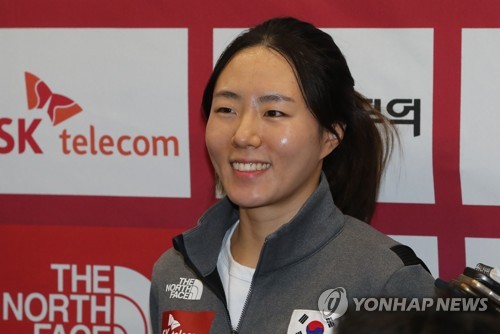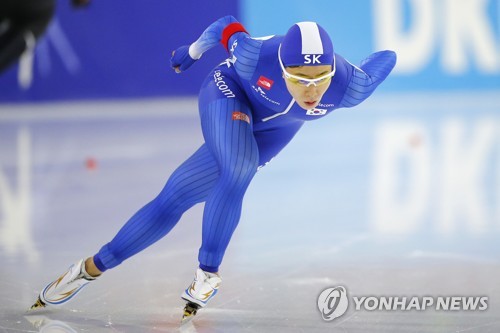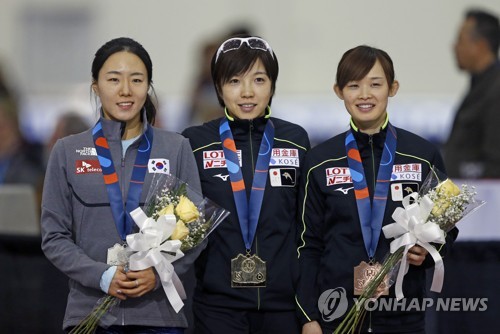When she takes the ice at the 2018 PyeongChang Winter Games next month, South Korean speed skater Lee Sang-hwa will be chasing a rare piece of Olympic history.
Lee will try to become just the second speed skater to win three straight Olympic gold medals in the women's 500 meters. American star Bonnie Blair, who won the 500m titles in 1988, 1992 and 1994, remains the only one to have pulled off the three-peat in the distance.
And it's such a rare feat that there's been only one other female skater to have captured three consecutive gold medals in all of speed skating -- Claudia Pechstein of Germany in the 5,000m from 1994 to 2002.

Lee made her Olympic debut in Torino in 2006, and shot to stardom by winning her first gold in Vancouver in 2010. She then repeated as the champion in Sochi four years later. And just months before the 2014 Olympics, Lee established a world record of 36.36 seconds that stands to this day.
Along with her two Olympic gold medals, Lee has won three world single distance titles in the 500m and one world sprint title in the same distance. Her legacy in the sport is already quite secure, but the 28-year-old would certainly like to pick up another gold medal at what could be her final Winter Olympics.
Unlike in the buildup to Sochi 2014, Lee now finds herself in the role of chaser, as Nao Kodaira of Japan has emerged as the new force in the 500m.
A late bloomer at 31, Kodaira has been undefeated in the past two seasons, her ascendency coinciding with Lee's struggles with leg injuries.

Kodaira won all eight of her races during the 2016-2017 International Skating Union (ISU) World Cup Speed Skating season, and captured both the world single distance and world sprint championships in the 500m. In the 2017-2018 season, Kodaira picked up right where she left off, winning all seven World Cup races and leaving Lee to settle for five silver and one bronze.
On a brighter note for Lee, she gradually improved her time as the World Cup season wore on. She opened the season sitting around 37 to 38 seconds, but came in under 37 seconds in each of her three most recent races -- once in Calgary and twice in Salt Lake City last month.
Lee set her season-best time of 36.71 seconds in the first of two 500m races in Salt Lake City on Dec. 8. Kodaira established her own season best to win that same race with 36.50 seconds.
Though she hasn't been a match against Kodaira on paper the past two seasons, Lee has said she remained undaunted by the Japanese star's impressive run.
"I am confident because the PyeongChang Olympics will be on home ice," Lee said after returning from Salt Lake City in December. "I am not too far behind (Kodaira) time-wise, and I'll try my best to win the gold medal."

The experience of winning the past two gold medals could also favor Lee in crunch time. World Cup wins are nice, but the Olympics will be a different animal, and Kodaira, in pursuit of her first Olympic gold, may find the pressure at PyeongChang 2018 somewhat different from a World Cup stop in Stavanger, Norway.
At previous Olympics, the combined time from two 500m races determined the medalists. But at PyeongChang, only a single race will be held. There's less margin for error and obviously no second chance for skaters to make up for even the slightest of hiccups.
This all means a lot can happen on the day of the competition: Feb. 18, to be exact. It falls on the final day of the Lunar New Year's long weekend -- only the largest holiday in South Korea -- and exactly a week before Lee's 29th birthday.
A gold medal would be a neat present in more than one way. (Yonhap)

